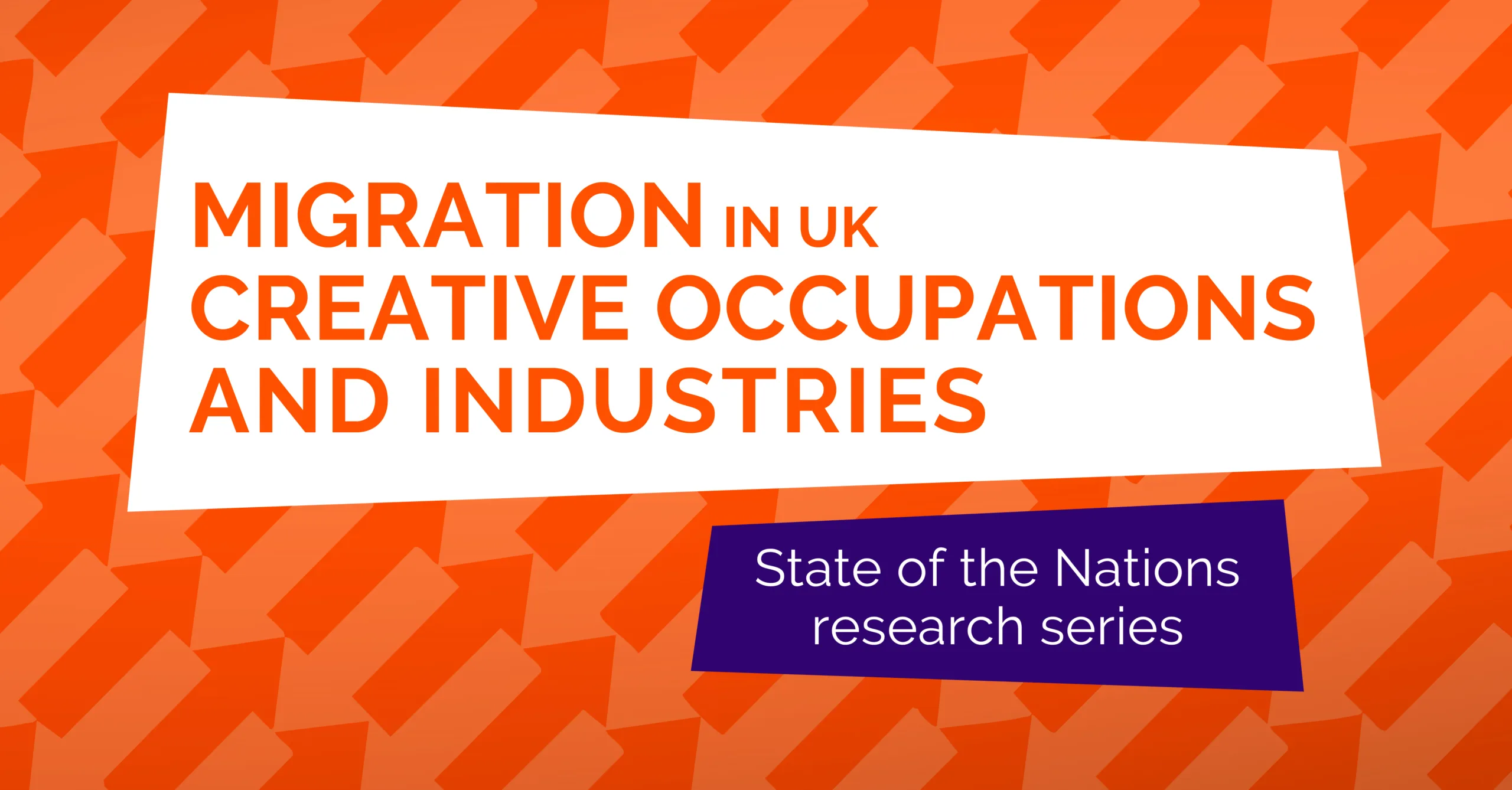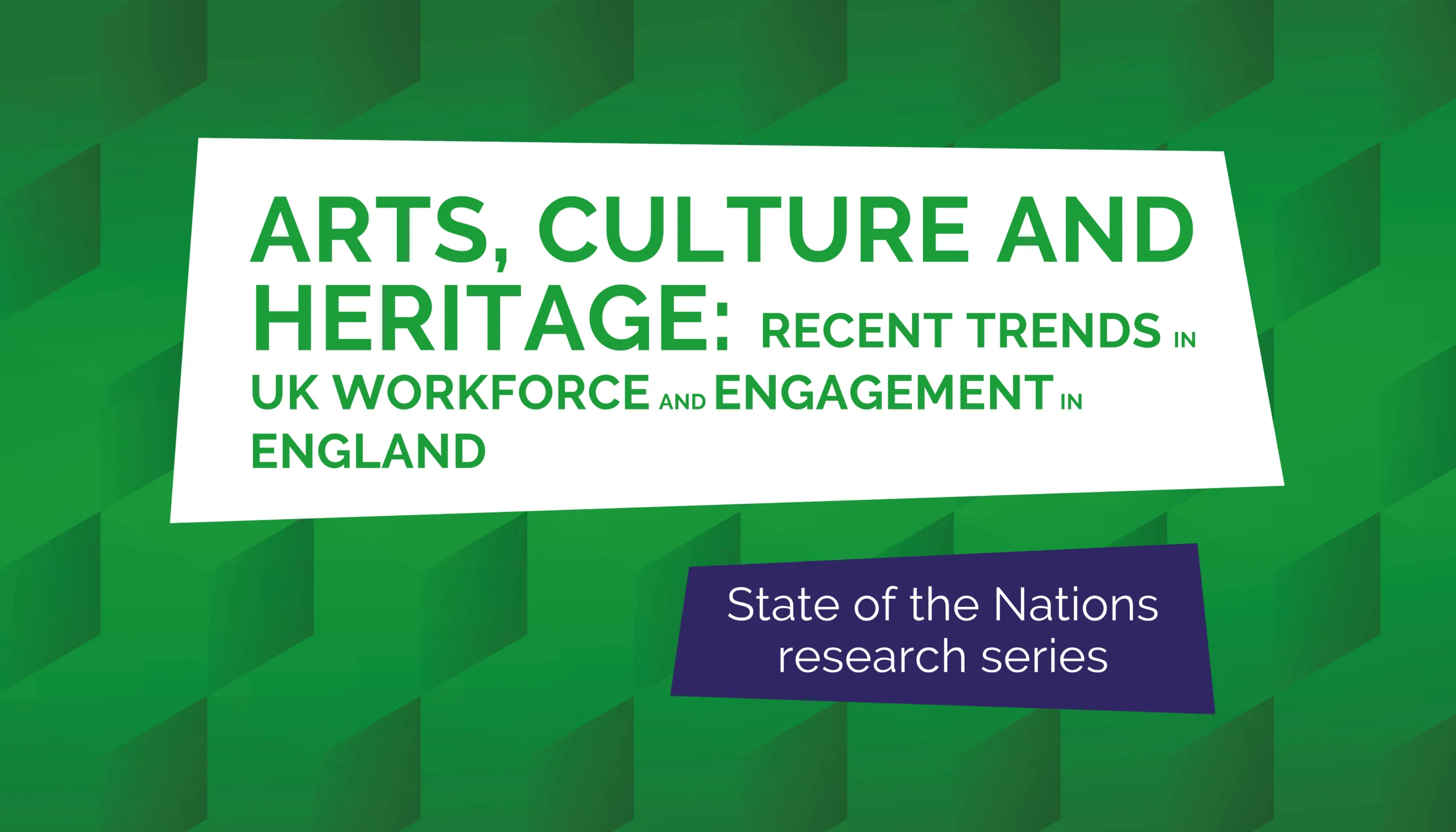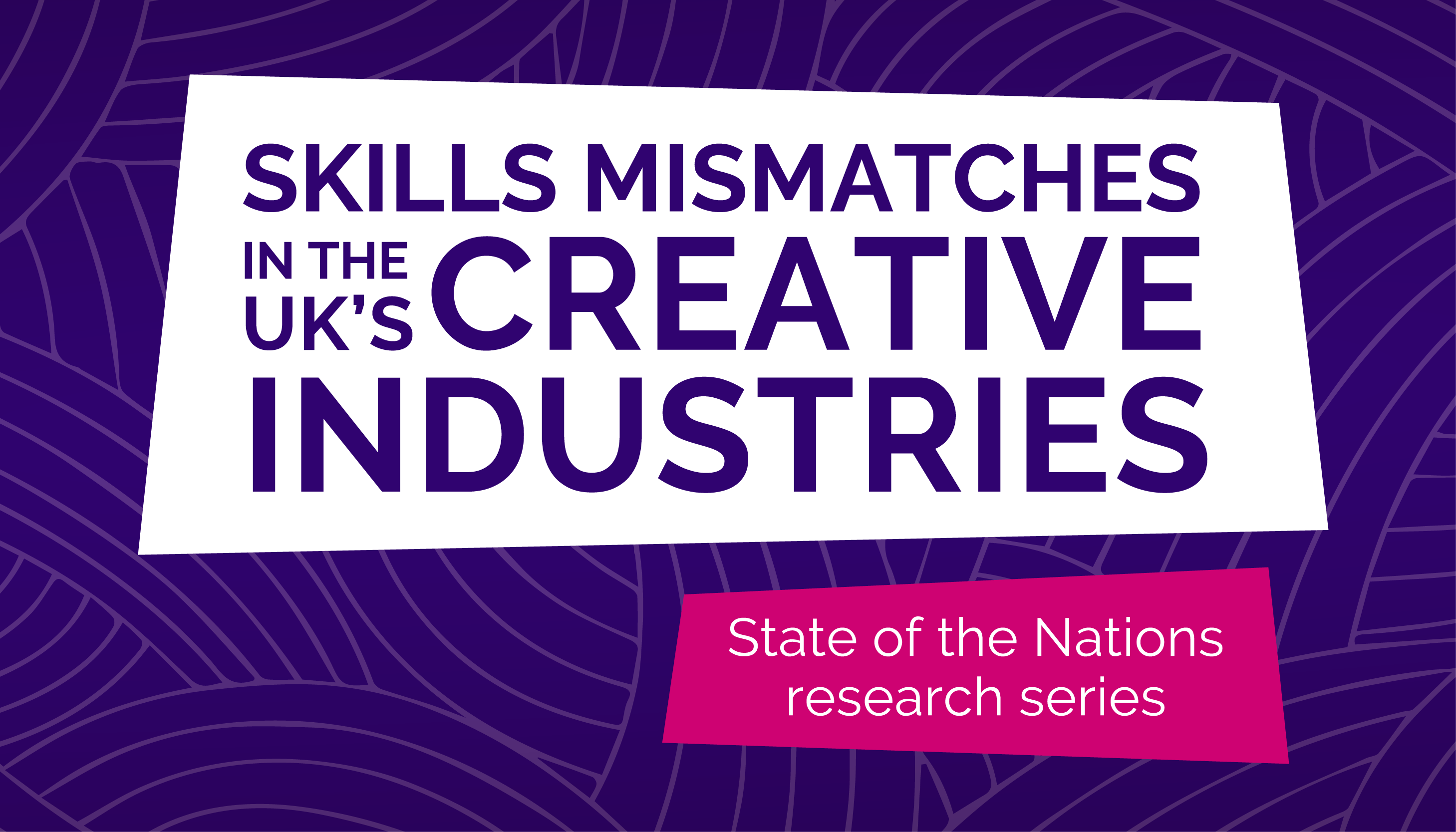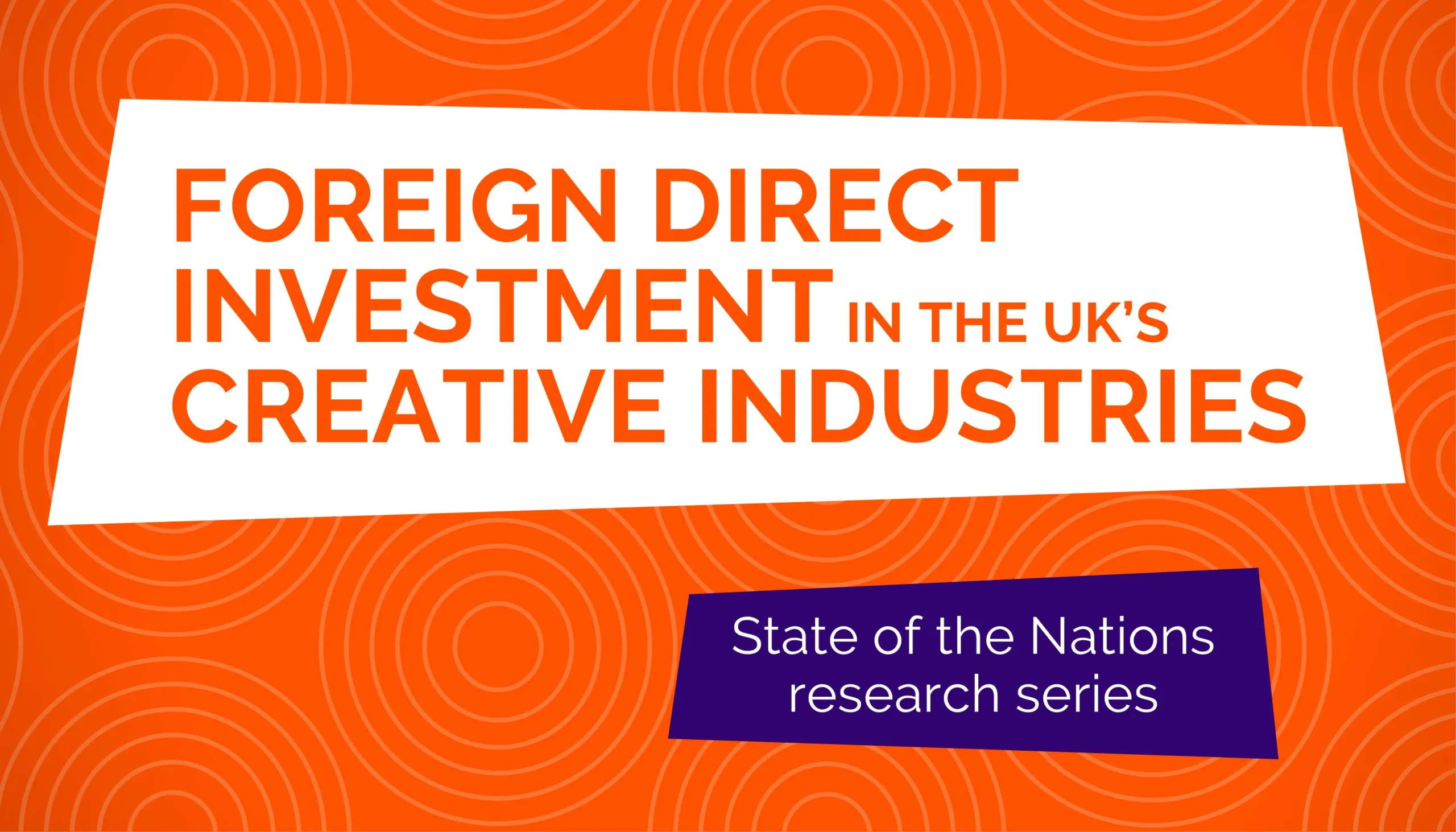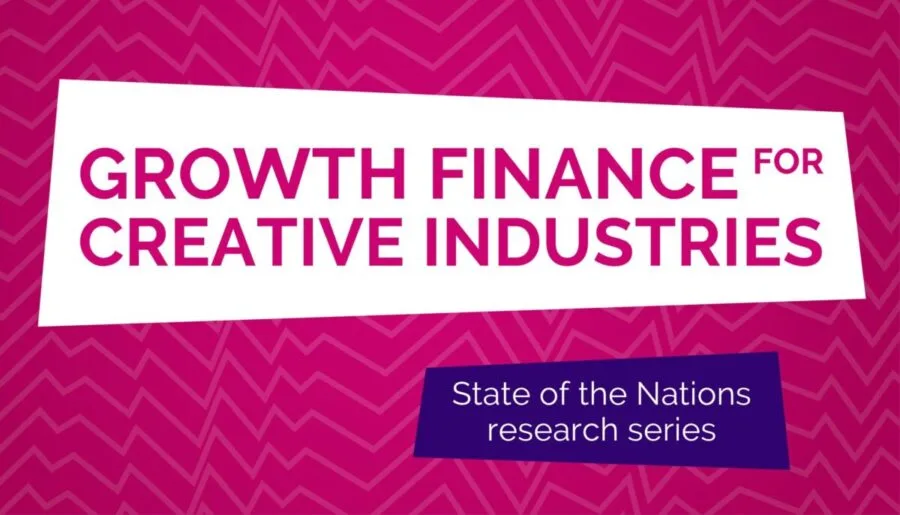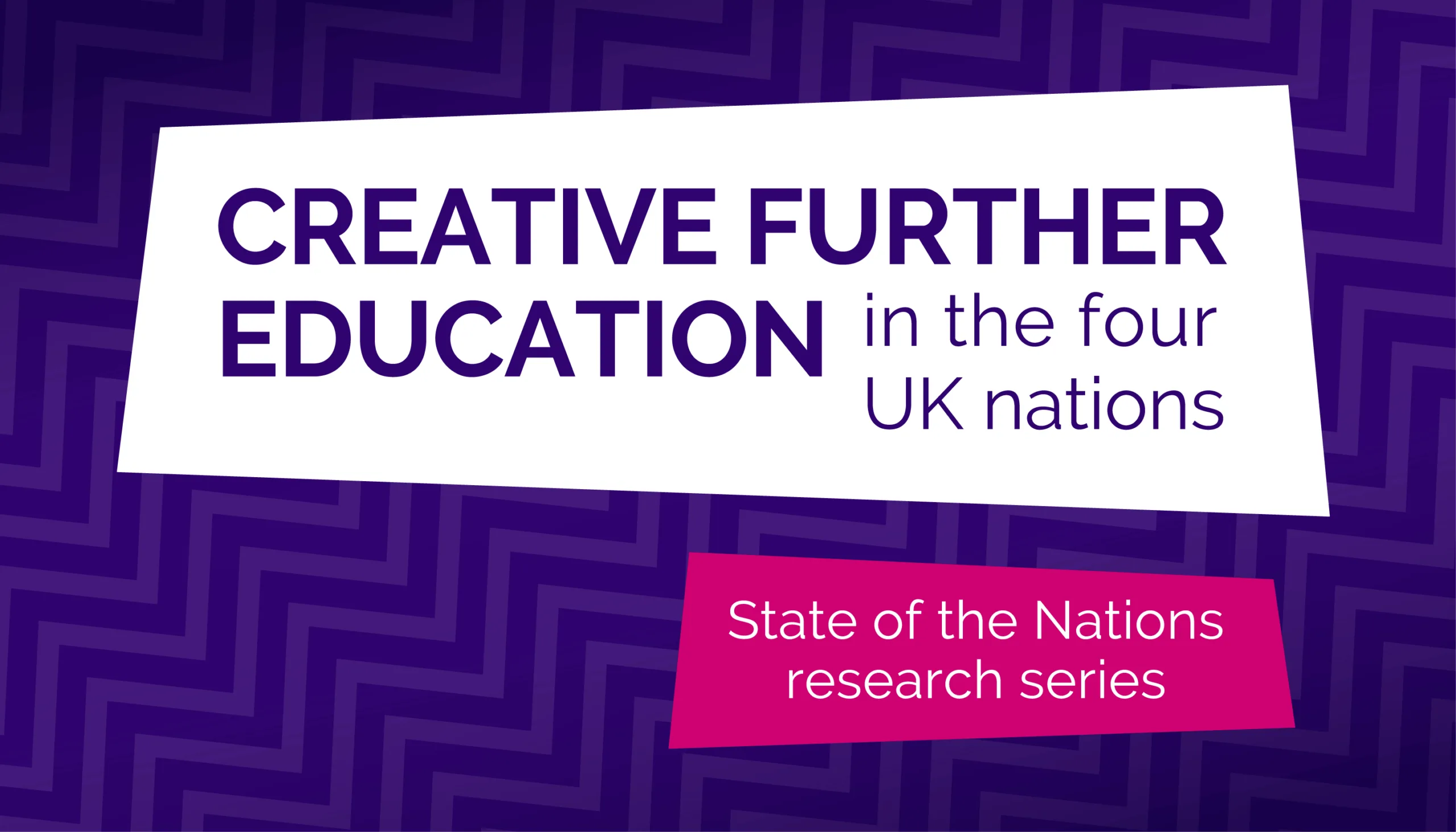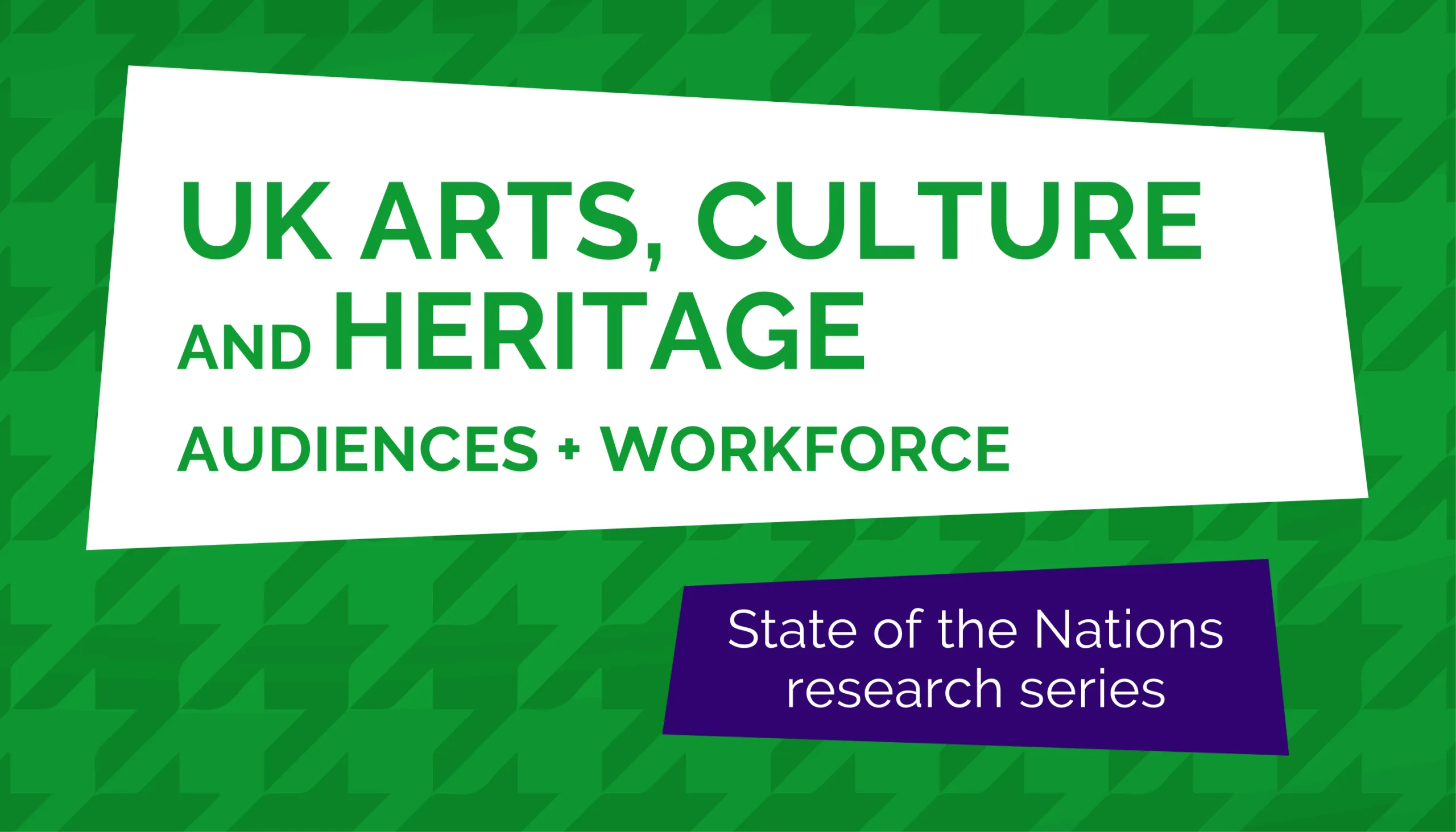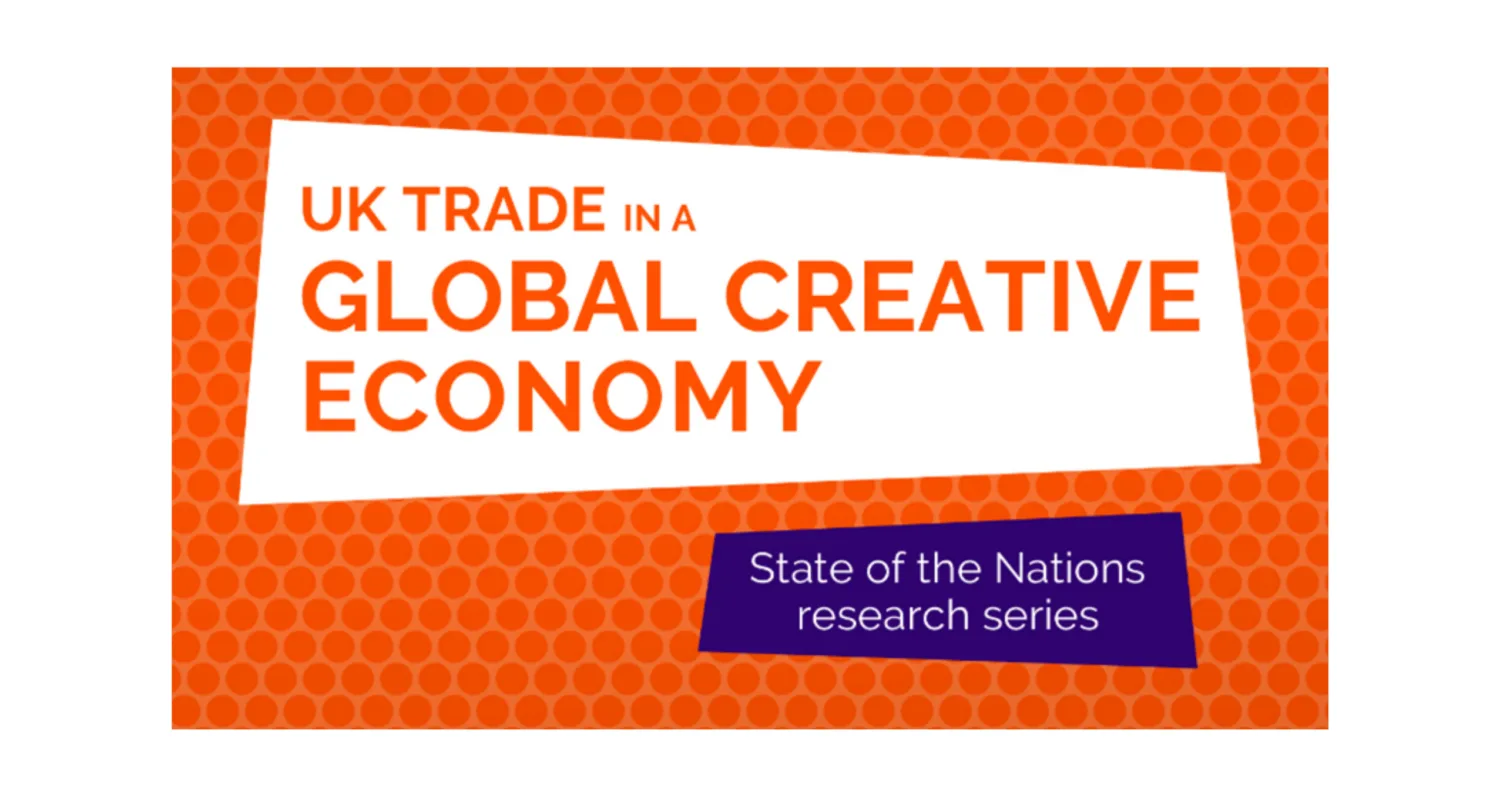NEWS RELEASE
Download the Press Release
Embargoed: 00.01 UK time Thursday 30th March
Two papers published today by the AHRC-funded Creative Industries Policy & Evidence Centre (Creative PEC) point to worrying trends and a growing skills shortage for the UK’s Creative Industries since the Brexit vote. The researchers make ten recommendations including changes to the current visa system to better support freelancers – the life blood of the creative sector making up 26% of the creative workforce – and more support for early career professionals.
The creative industries are at the heart of the UK economy; an exporting powerhouse and a vital employer. From fashion and film, to video games and visual arts; the Creative Industries are a UK success story. They grew at double the rate of the UK economy as a whole between 2011 and 2019, with 400,000 additional jobs created since 2015. Without reform, the changes seen as a result of Brexit risk stifling the sector which has been the envy of the world. One creative industries manager interviewed for the research described the current visa arrangements as ‘a nightmare, nightmare, absolute nightmare’.
Eliza Easton, Deputy Director of the Creative PEC says:
“The UK’s Creative Industries remain globally leading, but the backbone of policy which has supported this international standing – whether immigration policy, trade policy or diplomacy – seems to have crumbled, leaving the sector exposed to skills shortages, less able to sell its goods and services and under-estimated as a soft power asset. We recognise that policy change in this area won’t be easy – for example, the Creative PEC has previously suggested a freelance visa route for creatives like designers, the introduction of in-country trade specialists on the creative industries and a devoted soft power unit – but with the right political prioritisation we still believe we can turn the tide and maintain the sector’s competitive advantage.”
Post-Brexit Migration and Accessing Foreign Talent in the Creative Industries by Mohamed Yacine Haddoud, Ian Fillis and Tammy Murphy at Liverpool John Moores university identifies ten problems facing the sector in terms of international recruitment as a result of Brexit, they include; the cost, time and increased burden of the visa system, reputational damage to the country, restricted access to people at the start of their careers, due to the visa salary threshold and restricted access to freelance talent.
The research is based on 38 in-depth interviews with senior managers in the creative sector and evidence from an additional 147 companies during the quantitative phase. Sixty-three percent of those interviewed said the increased costs were a significant barrier to recruiting the international talent needed under the new Brexit points-based visa system. Specific costs mentioned included sponsorship, legal fees, the visa and the staff-time it takes to process this.
The CEO of a London-based performance company said; An HR Manager of a design firm interviewed as part of the study said; “There’s now an additional cost of £7,000 to £8,000, just to get an employee in the building and then sponsor them. Once they’re here, if they don’t work out, then that’s another seven grand to sponsor the next person”.
Ian Fillis, Professor of Entrepreneurship, Liverpool John Moores University says:
“Our research highlights a worrying picture for the UK creative industries in the future if the process for working with international creative freelancers and professionals isn’t better streamlined in order to reduce the complexities involved in securing worker visas.”
Brexit Uncertainty and Trade in Services: Evidence from the UK Creative Industries 2014 – 2019 by Jun Du, Oleksandr Shepotylo and Emine Beyza Satoğlu from Aston University further emphasises that the creative industries are heavily reliant on freelancers and access to an international pool of talent – musicians, artists, lighting professionals. Their study looked at the post-referendum period before the UK actually left the EU, and identified five creative sectors where the data was robust enough to perform accurate analysis. The researchers found all five sectors had been negatively impacted in terms of international trade during the post-Brexit vote period. They were; Audio-visual distribution and licences, Computer services, Advertising and market research services, Architecture services and Audio-visual related services.
The first of the two papers we publish today makes eight policy recommendations calling for action such as; a new smart visa scheme with the Home Office taking advantage of smart technology, a new visa scheme to accommodate creative freelancers, a dedicated Home Office helpline to support businesses with visa applications and the sponsoring process, a new visa with a lower threshold to attract more junior employees and for micro businesses to be exempt from the visa and sponsorship costs.
Without urgent reform there is a real danger that our creative industries won’t be able to access the talent and trade needed to thrive at exactly the time when the sector should be booming, with advancements in artificial intelligence, the entertainment economy and CreaTech.
/ENDS
______________________________________
Eliza Easton, Deputy Director of the Creative PEC is available for interview:
Press contact: Alice Kent alice.kent@nesta.org.uk 07779029055 (Monday-Wednesday) and Anna Zabow 07713 619077 / anna.zabow@nesta.org.uk (Thursday & Friday)
Two new papers were published by the AHRC-funded Creative PEC on Thursday 30 March:
Post-Brexit Migration and Accessing Foreign Talent in the Creative Industries by Mohamed Yacine Haddoud, Ian Fillis and Tammy Murphy, Liverpool John Moores University
Brexit Uncertainty and Trade in Services: Evidence from the UK Creative Industries 2014 – 2019 by Jun Du, Oleksandr Shepotylo and Emine Beyza Satoğlu, Aston University
Notes to Editors:
1. About the Creative Industries Policy and Evidence Centre (PEC)
The Creative Industries Policy and Evidence Centre (PEC) works to support the growth of the UK’s Creative Industries through the production of independent and authoritative evidence and policy advice. Led by Nesta and funded by the Arts and Humanities Research Council as part of the UK Government’s Industrial Strategy, the Centre comprises a consortium of universities and one joint enterprise from across the UK They are: Birmingham, Cardiff, Edinburgh, Glasgow, Work Advance, London School of Economics, Manchester, Newcastle, Sussex, and Ulster. The PEC works with a diverse range of industry partners including the Creative Industries Federation. To find out more, visit www.pec.ac.uk and @CreativePEC.
2. The Creative Industries Policy and Evidence Centre (PEC) is part of the Creative Industries Clusters Programme, which is funded by the Industrial Strategy Challenge Fund and delivered by the Arts and Humanities Research Council on behalf of UK Research and Innovation.
3. About Liverpool Business School, Liverpool John Moores University
Liverpool Business School is part of Liverpool John Moores University. It is an innovative business school which nurtures talent and provides the knowledge, experience and contacts its students need to succeed in their specialist business areas. It always strives to deliver multi-disciplinary, high-impact research. Its academic researchers are active across the full spectrum of topics relevant to shaping business and management practice. It has improved employability, boosted workforce productivity and generated innovation and growth. Its research strategy also has a strong focus on working with external partners. Its internationally acclaimed academics specialise in a diverse range of fields, including small business and entrepreneurship, using its expertise to find real-world solutions to business issues.
4. About Aston University Business School
Aston Business School is part of an elite group of global business schools that hold the gold standard of ‘triple-crown’ accreditation from AACSB, AMBA and EQUIS. We are one of the UK’s leading Business Schools for support for small and medium enterprises (SMEs) and helped to launch the national Help to Grow: Management programme. Our staff pioneer innovative teaching methods to make your learning experience more rewarding, with many responsible for writing the key textbooks in their field. Our students experience real-life business through projects, placements and in-house business clinics. The Aston Global Advantage postgraduate professional development programme focuses on more elusive social and personal aspects of business as well as offering opportunities to work or study abroad. We hold the Athena Swan Bronze award in recognition of our commitment to advancement of gender equality: representation, progression and success for our staff and students. Our departments and research centres work together to further our understanding of key business disciplines and issues, with a focus on innovation and impact. In the latest Research Excellence Framework, 77% of our research outputs were rated world-leading (4*) or internationally excellent (3*)
Related News and Press
Highly skilled, international talent helps fuel UK creative industries growth, finds new report
Embargoed 9am (UK time) Tuesday 10 June 2025 As the dust settles on the UK government’s Immigration …
Increasing inequality in arts and culture revealed by new research
Embargoed 00.01 Wednesday 7 May 2025 A new report from the Creative Industries Policy and Evidence C…
New Government-backed survey will provide unprecedent insight on what drives growth in the creative industries
In further indication of the increasing importance the Government is putting on the creative industr…
UK Government’s growth ambitions threatened by widening creative industries skills gap
Embargoed 00.01 GMT Wednesday 12 February 2025 The rapid growth of the UK’s creative industries has …
Invest at scale in place-based approaches to unleash potential of ‘Foreign Direct Investment’ in UK’s creative industries says new research
Embargoed 00.01 Wednesday 20 November 2024 GMT With the UK Government’s forthcoming industrial strat…
With the right financial support creative industries could fuel the Government’s growth mission and help tackle persistent regional inequality
A new report published today by the AHRC-funded Creative Industries Policy and Evidence Centre (Crea…
Access to Finance: launch of new research project
New research is being undertaken by Creative UK in partnership with the Creative Industries Policy a…
New research points to a looming creative economy skills shortage across the UK
New report shows ‘severe’ decline in creative further education participation Embargoed 17 July 00.0…
Press Release: New research, including – once in a decade data – provides comprehensive overview of audiences and workforce across arts, culture and heritage.
Embargoed 00.01 Wednesday 15 May 2024 (BST) For the first time, census data has been used to provide…
Press Release: UK’s creative industries are an export success story
New report shows creative strength despite Brexit and Covid Embargoed 00.01 Wednesday 20 March 2024,…
Introducing the Creative PEC’s Research Fellows Network
By Professor Hasan Bakhshi, Director Creative PEC and Professor Giorgio Fazio, Director of Research …
‘One Creative North’ plans finalised at summit ahead of Convention of the North
30 organisations meet to set out a bold new vision for the north of England’s creative industries To…

